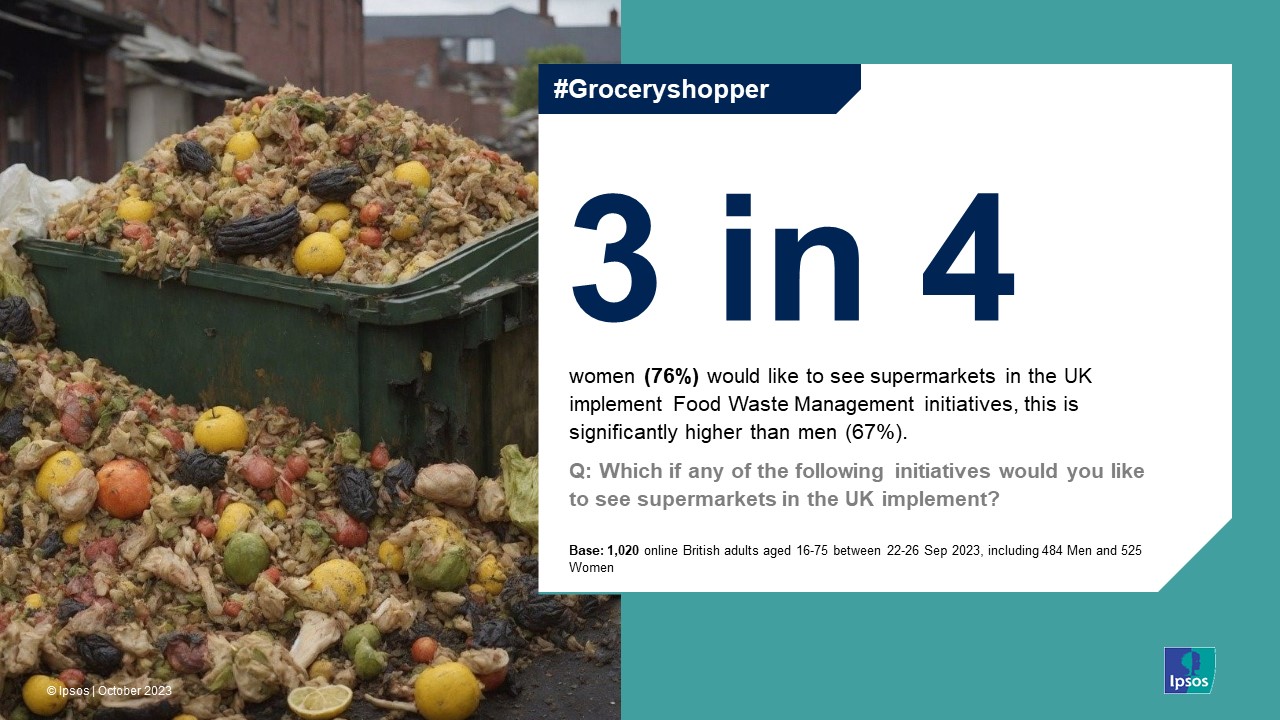Supermarkets and their environmental commitments
The Grocer released a new article this week – ‘Brits blame ‘greedy’ supermarkets for higher costs of green living’ – drawing heavily from recent Ipsos polling data.
Our findings showed that while supermarkets are by no means solely responsible for actions to help reduce the UK’s carbon footprint to help tackle climate change, there is a definite feeling that they could – and should – be doing more.
In particular, there is strong agreement that making more sustainable product choices costs more (75% agree) and that shoppers are expected to bear the cost of more sustainable options (75% agree). Moreover, seven in ten (71%) agree that supermarkets prioritise their profits over sustainability.
However, our polling pointed to the future, to capture initiatives that British consumers felt that supermarkets should implement. Food waste management came out top of those asked about (72% would like to see this implemented), alongside the perhaps more obvious initiative of reducing plastic usage (69%).

Alex Baverstock, Ipsos’ UK Lead for Product & Pack Testing comments:
We are conscious that many of these accusations could equally be levelled at other retailer categories, and on brands who sell through supermarkets. But with supermarkets being at the sharp end of people’s regular shopping, it is clear they have a prominent role to play in tackling – and helping everyone tackle – sustainability and climate concerns.
What comes through clearly in our polling is that many consumers are not willing to pay more for more sustainable options; certainly a smaller proportion that would otherwise make more sustainable product choices if cost was not a consideration.
This aligns very closely with a whole range of other studies that Ipsos have conducted, but doesn’t always tally with retailer or manufacturer hopes of passing on costs of improved sustainability to the consumer. Where more sustainable options are more likely to be successful, particularly if at a premium, is where sustainability is presented as a co-benefit, in addition to other relevant and differentiating factors that might draw people to purchase.
Technical note
- The research was carried out by Ipsos.
- Ipsos interviewed a representative quota sample of 1,020 adults aged 16-75 in the United Kingdom using its online i:omnibus between 22nd and 26th September 2023.
- The sample obtained is representative of the population with quotas on:
- Age
- Gender
- Region
- Working Status
- The data has been weighted to the known offline population proportions for age, working status and social grade within gender, and for government office region and education, to reflect the adult population of the United Kingdom.
For more information please contact the Ipsos Omnibus Team.




